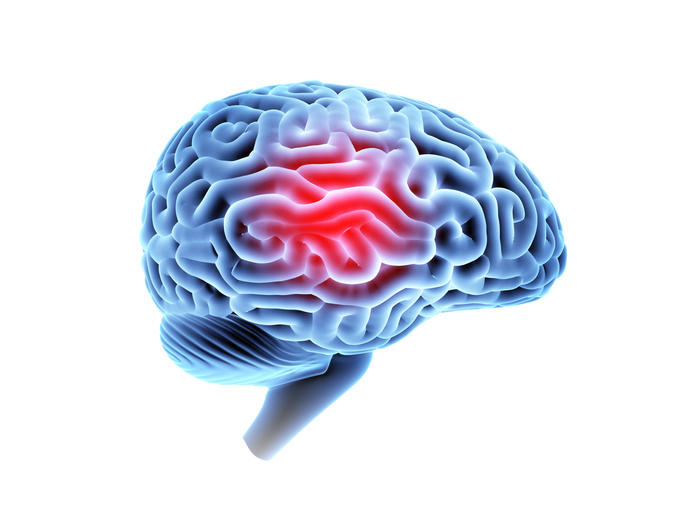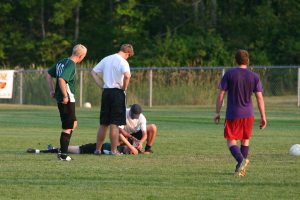
Most people with a concussion recover quickly and fully. But for some people, symptoms can last for days, weeks, or longer. In general, recovery may be slower among older adults, young children, and teens. Those who have had a concussion in the past are also at risk of having another one and may find that it takes longer to recover if they have another concussion.
Leading Causes of Concussions
- Falls
- Motor vehicle-related injury
- Unintentionally being struck by or against an obstacle
- Assaults
- Playing sports
References:
Centers for Disease Control and Prevention
https://www.cdc.gov/
Facts about Concussion and Brain Injury
Brain Injury Association of America
https://www.biausa.org/brain-injury/about-brain-injury/concussion
Concussions

A concussion is a traumatic brain injury that occurs when the brain is violently shaken. It is usually the result of a bump, blow or jolt to the head or body that causes the head and brain to move back and forth rapidly. It is among the most commonly reported neurological conditions. The Centers for Disease Control and Prevention (CDC) estimates that as many as 3.8 million people experience concussions each year in the United States.
Many concussions go unreported because people lack knowledge about the symptoms that can occur. Before extensive research was done on the subject, “getting your bell rung” was a common, casual way to refer to a concussion. However, we know now that every concussion is significant, unique and potentially complex.
An injury that causes a concussion can damage multiple areas of the body. The brain, cervical spine, inner ear and eyes can all be affected. If a concussion is not accurately diagnosed and treated, recovery time may be delayed and more complicated.
Most concussion symptoms go away within 10 days for adults and 21 days for children and adolescents. However, post-concussion syndrome (PCS) describes symptoms that persist beyond the 10-21 day recovery time.
Signs and Symptoms of Concussion
- Headache
- Dizziness
- Increased sleepiness
- Double or blurred vision
- Slurred speech
- Difficulty with balance and coordination
- Sensitivity to light or noise
- Glassy-eyed stare
- Nausea/vomiting
- Fatigue
- Seizures
- Appears dazed, stunned or confused
- Feels foggy
- Difficulty concentrating
- Confusion
Treatment of Concussion
If a concussion is suspected, the person should receive prompt medical attention to check for other injuries as well, such as skull fracture, neck injury or bleeding on the brain.
Immediate rest is the first and most important step in recovering from a concussion. The patient may sleep, use an ice pack, eat light meals or snacks and stay hydrated. They should not drive, drink alcohol, participate in any strenuous activity, take ibuprofen or aspirin (anti-inflammatories), or use electronic devices such as cellphones or tablets.
How Physical Therapy Can Help
 Because no two concussions are the same, a physical therapist can evaluate and treat many related problems. A well-trained therapist will examine your neurological, orthopedic and cardiovascular systems, then recommend a routine to address any lingering symptoms. The physical therapist also can recommend the right amount of rest needed for optimal recovery.
Because no two concussions are the same, a physical therapist can evaluate and treat many related problems. A well-trained therapist will examine your neurological, orthopedic and cardiovascular systems, then recommend a routine to address any lingering symptoms. The physical therapist also can recommend the right amount of rest needed for optimal recovery.
While physical and mental rest are therapeutic, the result can be weaker muscles and decreased physical endurance. A carefully timed exercise program can help rebuild strength while not worsening the concussion symptoms. Gradually, activities will be added so that the person can return to normal work, daily activities and recreation.
Therapeutic techniques may include:
- Vestibular or balance therapy
- Vision and coordination testing
- Graduated exercise therapy
- Manual therapy
- Trigger point dry needling
If you or a family member have suffered a blow to the head or neck area and are not sure what to do next, please call us toll-free at (877) 342-2669 or use our online request form to schedule an evaluation with the concussion experts at Progressive Physical Therapy. We’ll be your partner on the road to recovery!


